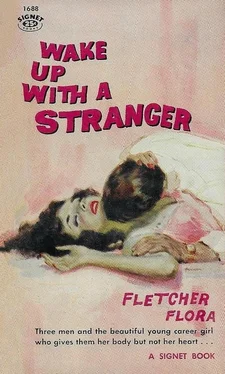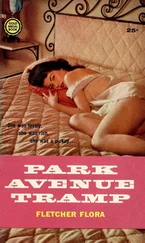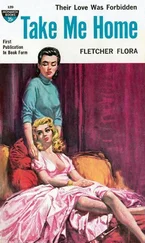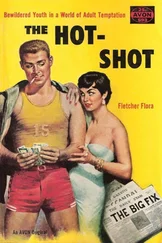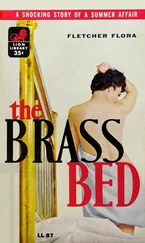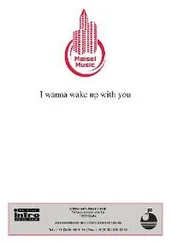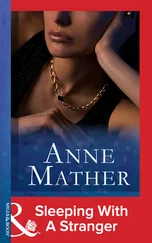“I don’t think I see any sense whatever in that.”
“Maybe there isn’t any.”
“What are you doing now?”
“Teaching.”
“Here in the city?”
“Yes. At Pine Hill.”
“Teaching at such an exclusive school is quite an accomplishment, it seems to me.”
“Not at all. It’s a horrible place, crawling with detestable little monsters. Every day I think I cannot possibly endure another one.”
“Oh, please! It can’t be as bad as that.”
“It’s worse. It’s unspeakable, and therefore I don’t want to talk about it.”
“All right. We won’t mention it again. Would you like me to make you some coffee?”
“No, thank you. I don’t believe I need any coffee. What I need more than anything else is to go to bed, but what I need least of anything else is to go back to my room at the school, and this puts me in a dilemma. I’m no good in a dilemma. When I’m in a dilemma, I just do nothing or start drinking. That’s something else that drinking is handy for that I forgot to mention.”
She knew while he was speaking what she would do, and knew also she shouldn’t do it. Once, a very long time ago, she had wanted him and had had him briefly. Afterward she had not wanted him in the least, and had been unable to understand why she had ever wanted him. Now, because of her strange vulnerability, she wanted him again, knowing the time would shortly come when she would again not want him.
“Would you like to stay here?” she asked.
“I’d like it very much if you will let me.”
“It’s all right. You can stay if you want to.”
He leaned toward her and let his head fall forward upon her shoulder. She put her arms around him and felt, under the thin stuff of her gown, the hot appeal of his hands, to which she responded.
He is lonely and in need of me, she thought, and I am lonely and in need of him too, though he doesn’t know it, and if it is a mistake for one or for both of us, as it will certainly turn out to be, it is at least one that we can now make the most of.
Disengaging an arm for a moment, she removed her glasses and laid them aside.
Thinking severity would be appropriate, she wore a brown wool gabardine suit and a simple white Dacron blouse with a string bow at the collar. As she waited in an outer office for Tyler to become free, Donna wondered that she had bothered to come here on an errand, certainly futile and with small chance of success. But she understood she was compelled to explore all possibilities, however remote, just as she had been compelled to effect the fiasco with Shirley Burns. Two hundred thousand dollars was to her an enormous sum of money, something about which one might talk, as one talked about the light years to the sun, but which was never quite clearly comprehended or obtained. Here in the rich atmosphere of the bank, where money was handled and kept in staggering amounts, paradoxically it seemed to be more remote and unobtainable than ever. However hard she tried to convince herself of the reasonableness of her effort, she simply could not imagine that a shrewd and conservative financier would risk so large an investment in her talent and confidence, which were all that she had to offer as security. Perhaps he would scoff at her. Perhaps, even worse, he would treat her appeal with the kind condescension that one accords the fantasy of a child. She could not bear the thought she was absolutely the greatest possible fool to expose herself to such humiliation, and if she were to leave immediately, she could still avoid it. But she did not leave, of course. Because she was compelled, she sat and waited.
“Mr. Tyler is ready to see you now. Please go right in.” Standing, Donna crossed to Tyler’s door and let herself into the office. Now that she was irrevocably committed and was acting positively, her dread of the interview was suddenly gone. The first thing she felt inside the office was an extravagant pleasure that she had worn by chance a color that went well with the dark walnut paneling, and she was able, moreover, to be amused by her pleasure as she would have been amused at choosing a hat to match a car. Tyler was seated behind a massive desk, walnut like the paneling, and he stood up as she entered and came around to meet her. Behind him an expanse of Venetian blinds admitted light in a pattern of horizontal bars. He was wearing gray, as he had been the one time she had seen him in the shop, expensive and impeccable, and he held her hand a moment with the same cool, dry touch she had noted then.
“How are you, Miss Buchanan?” he said. “I’m happy to see you again.”
“Thank you,” she said. “I wasn’t certain that you’d remember me.”
“You’re much too modest. It would be more difficult to forget you than it is to remember you.” He indicated a chair beside the desk. “Will you sit down?”
She thanked him again and accepted the chair. Seated again, he offered her a cigarette from a silver box on the desk, leaning forward to light it with a lighter that matched the box. The cigarette was just what she needed. She felt relaxed and durable and, if not confident of success, at least prepared to accept failure.
“Has Mr. Joslin spoken with you?” she asked.
“Yes, he has. About you — and very highly.”
“Mr. Joslin has been kind and helpful. I don’t know why he should concern himself with my affairs, but I’m thankful that he does. I suppose he explained to you why I asked to see you.”
“He did, of course, but I’d like to hear it again from you.”
“Well, I don’t know how to say it except simply. The shop in which I work, which was left by Aaron Burns as part of his estate, is to be sold. I would like to buy it myself, but I have practically no money and no security. My proposition is that your bank loan me two hundred thousand dollars, which would be secured by a mortgage on the business.”
“For better or worse, you have at least put it precisely. I understand from Mr. Joslin that the business has been doing extremely well.”
“Yes. It has done well, and I’m certain that it will do even better in the future if I am able to continue along the lines we have established.”
“I can easily check the past record of the business, of course, but it is not so easy to verify what may be anticipated. What makes you feel, now that Mr. Burns is dead, that the business will not deteriorate?”
“Because I contributed much to its growth in the past few years.”
“That you are exceptionally talented in the designing and execution of fashions I am convinced. There is more to operating a business, however, than the creation of a product. Do you also have the training and the quite different kind of ability that would make you successful in management?”
“I think I have. When Mr. Burns had his second heart attack, I was left in charge. I admit this was for a short period. Nevertheless, it was long enough to give me the feel of things and to assure me that I could have run the shop indefinitely.”
Tyler helped himself to a cigarette. He sat quietly for a few seconds, looking down at the glowing ash and the thin ascending silver smoke.
“Two hundred thousand dollars is a lot of money, Miss Buchanan,” he said at last. “It is especially a lot of money when it belongs to someone else and is merely in one’s custody. What I’m trying to say is, I must exercise a conservatism in the investment of bank funds that I might not exercise in the investment of my own. At any rate, a loan of this kind and size could be made only after a very meticulous investigation, and I must tell you honestly that I can’t offer you much reason for optimism. I accept personally your statement about the condition of the business, but you can surely see that you as an individual are an additional and relatively unknown factor of peculiar significance in this case. I am certain, I must tell you, that your request for this loan will not be approved.”
Читать дальше
